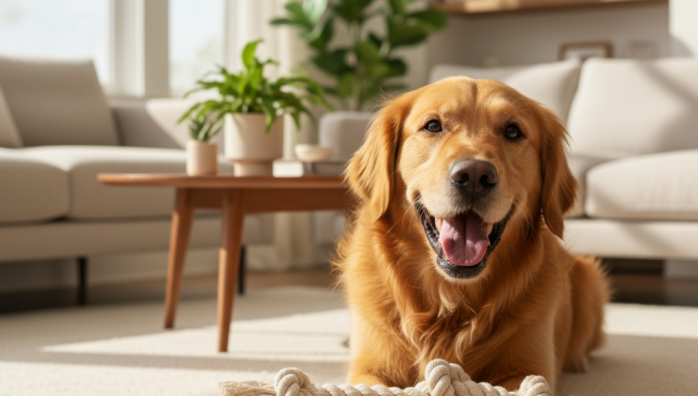Sustainable Pet Product Swaps
by admin in Pet Care Basics 100 - Last Update November 23, 2025

I\'ve always tried to be mindful of my environmental footprint, but for years, I had a huge blind spot: my pets. I remember looking at the pile of plastic toy remnants, empty food bags, and the endless rolls of plastic poop bags and feeling a pang of guilt. It felt like my love for my dog and my commitment to the planet were at odds. That\'s when I started my journey into sustainable pet parenting, and honestly, the simple swaps I\'ve made have been easier and more rewarding than I ever imagined.
Why small swaps matter for our pets and the planet
It’s easy to feel like one person\'s choices don\'t make a difference, but I\'ve come to believe the opposite. The pet product industry is massive, and our collective purchasing power can drive real change. Choosing a toy made from recycled materials or a compostable poop bag sends a message. More importantly, it reduces the direct plastic and chemical load on our environment. For me, it also brought peace of mind, knowing the items my dog chews on and eats from are made from safer, more natural materials.
My go-to swap: a better way to handle waste
Let\'s start with the daily task we all know and love: poop scooping. For years, I used standard plastic bags without a second thought. My first, and easiest, swap was to compostable or biodegradable poop bags. It’s crucial to look for bags certified for home or industrial composting. They break down much faster than traditional plastic, which can linger for centuries. It’s a small change in habit for a huge reduction in long-term plastic waste. It felt like the most logical first step.
Toys that don\'t trash the earth
My dog is a power chewer, and the graveyard of destroyed plastic toys in our home used to be a real problem. I was constantly throwing things away. My game-changer was discovering toys made from natural or recycled materials. Here\'s what I look for now:
- Natural Rubber: It\'s durable, safe for heavy chewers, and comes from a renewable resource.
- Hemp and Recycled Cotton: These are fantastic for rope toys and plushies. They\'re strong, biodegradable, and much kinder to the planet than synthetic fibers.
- Recycled Plastics: Some great brands make tough-as-nails toys from ocean-bound or post-consumer recycled plastic. It gives waste a second life and keeps it out of landfills.
Honestly, my dog hasn\'t noticed the difference, but my conscience certainly has. The durability of some of these natural rubber toys has also saved me money in the long run.
Smarter choices for feeding and grooming
The plastic consumption doesn\'t stop with toys. I took a hard look at our feeding station and grooming supplies and found more easy swaps. I switched out our old plastic bowls for stainless steel ones. They\'re incredibly durable, easy to clean, and last a lifetime, unlike plastic bowls that can get scratched and harbor bacteria. When it comes to grooming, I now use shampoos with natural, biodegradable ingredients and a wooden brush with natural bristles instead of a plastic one. It\'s these little, thoughtful changes that add up to a much greener routine for my furry family member.














